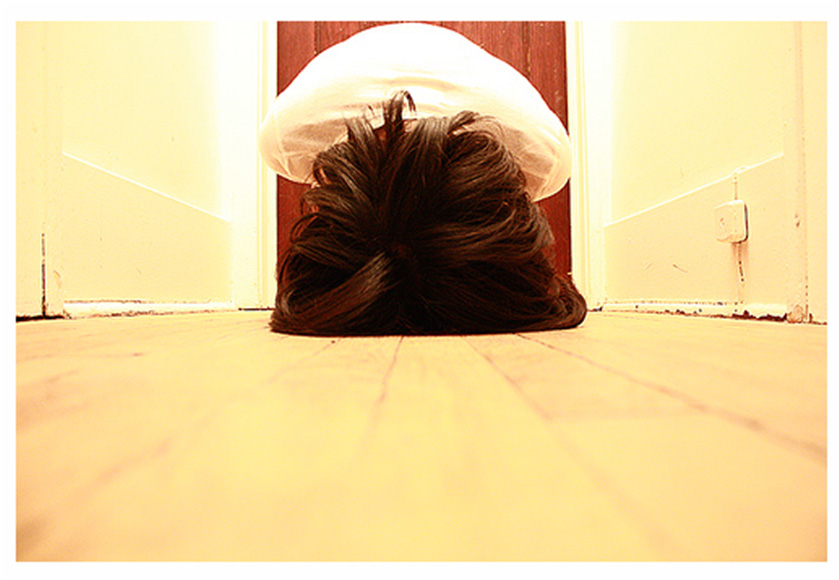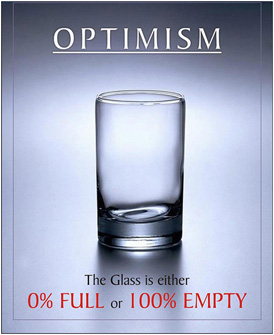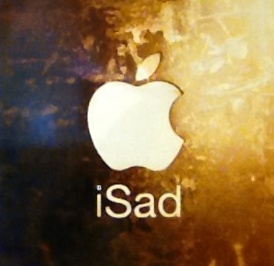Author Archive

There is no denying that professional achievement, financial triumph, power and celebrity are valued to the extreme in our society. In fact, these are the goals to which many aspire and – more easily than ever – are able to reach. Yet, a sense of overall well-being does not necessarily accompany the accumulated satisfaction of such aspirations. All too often even the most successful are left asking that infamous question – ‘Is that all there is?’
Instead of enjoying the heady view from the top, many of us face a strange paradox – the higher we go, the deeper the secret feelings of gnawing discontent, despair or depression. The solution to this confusing and disconcerting state of mind can often be found in determining what really matters to us and resetting our priorities in pursuit of those things. The curious part is that so many of us find it difficult to identify just what those meaningful things are.
Start finding out what really matters to you by answering the following questions.
- What are the things I most regret not having done in my life?
- What are my greatest original gifts and am I using them regularly?
- What are the things in life that have always made me feel the best?
- What on the planet needs doing that I can do?
- What am I willing to do to ensure that my life is richly balanced and complete?
As Pablo Picasso suggested – “The meaning of life is to find your gift. The purpose of life is to give it away.”
 Comments Off on WHAT REALLY MATTERS?
Comments Off on WHAT REALLY MATTERS?
 Every new year we are challenged to conger up resolutions aimed at making us stretch, grow, realize some longed for attribute or achieve some sought after goal. Every new year we are challenged to conger up resolutions aimed at making us stretch, grow, realize some longed for attribute or achieve some sought after goal.
Certainly, a new year sets the stage for reviewing life, examining values and charting new courses. But, of the estimated 100 million resolutions Americans often hastily make on New Year’s eve, statistics show that 80% of them don’t make it to the end of January.
Thus we might be tempted to follow English novelist Fanny Burney’s lead, “Far from having taken any positive step, I have not yet even formed any resolution.”
On the other hand, maybe our resolutions aren’t kept because we don’t arrive at them knowing what we really want. What would truly make us happy.
Most of us can easily answer questions like – what new skills would I like to learn in the coming year? What bad habits would I like to eliminate? What would I most like to accomplish? What new place would I like to visit? But, things get a little murkier when we attempt to answer the question – what can I do in the coming year that will make me happy? Meaning, what do I really want out of life? Questions not so easily answered.
If we’re one of the many who has a hard time pinpointing our precise wants in life, we can begin to make choices in favor of the things we enjoy. We remove things that irritate us and add to our schedules ordinary pleasures that will refresh our days and show good self-respect. We dig to find out what excites or stretches us thus adding greater satisfaction to each day. We recognize that happiness is not only about earning, achieving, advancing. That is often comes from life balance which includes multiple interests and plenty of planned good times.
In short, maybe the most worthwhile challenge is to determine what our own particular ‘happy’ is. Further, if we spend the entire year determining what means a lot to us, what we’d really like to be doing, what really rings our chimes, it will be a year well-spent.
Perhaps we can all say “Happy New Year of No Resolutions” to that!
 No Comments »
No Comments »

All but the most singularly focused have expereinced head mess.
Re-held conversations. Re-litigated issues. Re-fought battles. Re-visited wrongs, disappointments and defeats. We entertain endless, pointless chatter that annoys us. Troubles us. Keeps us uncomfortable and negatively occupied.
Oddly, we much less often rerun our victories. Infrequently have an endless loop of joy running in our minds. Thrilling us repeatedly with all the good things that have happened.
Oh, no.
It’s the bad. The ugly. The stuff that angers and belittles that we mentally chew on. Over and over. With no one else there but ourselves. The negative seems to have greater power. It subdues or even obliterates the positive. Creates a constant mess in our heads.
In short, that junk in our heads is not bothering anyone but us. And, clever and amusing as Steven Tyler’s question might be, it’s no laughing matter.
Negative head noise is a challeging issue. One most worth tackling if we want to live guilt-, anger-, envy- or worry-free.
It’s up to us. We can succumb to the endless, negative loop or consciously and repeatedly decide to replace the mess with – at the very least – quiet neutrality.
It’s a worthy battle to face and win. If only moment to moment. Which brings us into day to day.
The most satisfying present.
 No Comments »
No Comments »
 The smart little fox knows there’s nothing like a great stretch to start the morning off right. We can do the same. The smart little fox knows there’s nothing like a great stretch to start the morning off right. We can do the same.
Let’s see what happens next.
Not only it is delicious, we can use that stretch as a reminder to take a few minutes of quiet meditation to set the intention for the day.
Maybe say a prayer or two to get ourselves into the perfect frame of mind. Invite in all the good we wish to give and receive during our waking hours.
Seems simple.
So, why don’t we do it? Start our days quietly, peacefully, respectfully?
Well, you know.
We’ve got to check email. We’re running late for a meeting. The kids need breakfast. We just don’t have TIME.
Imagine that. We don’t have time.
In more truthful terms, we’re saying we don’t care enough about our internal selves to set aside even a few moments to determine and evaluate the intended purpose of our day. That we’re too busy serving the outside world.
Not very self-respecting.
How easy it is to take and use that stretch in the morning as a reminder of the most important thing in each day: our own self-care.
If we do it each morning, it will change our lives.
 No Comments »
No Comments »
 Each day we are innundated with dire statistics about recession, joblessness, housing crises and financial mayhem. Each day we are innundated with dire statistics about recession, joblessness, housing crises and financial mayhem.
Retirees are panicking. Parents are agonizing about their childrens’ future. Everyday people are convinced they’ve seem their best days.
The ‘news’ is relentlessly dedicated to delivering fear, pessimism, helplessness and hopelessness.
In the midst of all that how can we possibly envision a better future?
Even more audacious, how dare we flirt with optimism?
My question is, how dare we not?
In fact, it is urgent that we find ways to express belief in and dedication to our healthy future.
That we dig deep for courage and determination to thwart those who would try to convince us of our powerlessness.
To participate in and demand that we revive our national self-confidence.
That is the only remedy for what currently ails us and we can not afford one further second of delay.
Instead of daily hand-wringing, let’s busy ourselves with taking our own individual and cooperative steps towards improvement.
Understanding what our part is in the picture we see.
Surrounding ourselves with potent reminders of what we must do to change things we don’t want in our lives.
“It is our attitude at the beginning of a difficult task which, more than anything else, will affect it’s successul outcome.” William James.
Believing in what Margaret Mead said, “Never underestimate the power of a small group of people to change the world. In fact, it is the only way it ever has.”
And, without prejudice, accepting our responsiblity in making our future better than it is today – “…united there is little we cannot do in a host of cooperative ventures…”
Seeking out those thoughts and activities that will enhance our lives – if only in the moment.
Living in the philosophy of Chinese poet, Bei Dao, who said, “I’ve always believed my best poem should be the next one.”
Finding innovative, imaginative and life-giving ways to manage the changes we see. Looking past our own individual lives to those around us. Not for company or validation or for what we can get from them. But, what we can give – and – thus collectively gain.
This is not the time for half-full. It is THE time for 100% belief in and movement towards a better – however different – future.
Join me in finding not only yours and mine – but ours.
 No Comments »
No Comments »
 We’ve all experienced it. A sudden sense of forboding. We’ve all experienced it. A sudden sense of forboding.
A scary feeling that something bad is about to happen and it will rock our world.
These sensations create fear. They shake our confidence and disturb our forward mometum.
So, what actually is happening in moments like these?
Are we experiencing a premonition? An instant of intuition? Genuine psychic warning?
While sometimes such feelings do presage danger – tipping us off to something we need to avoid or address – often they signal something more insidious.
Rather than some extraordinary advance knowledge, we might just be getting a glimpse of our general world view. Our frightened and negative inner landscape which – left unchecked – will bring to fruition many an errant warning. That will turn our deepest, unaddressed fears into self-fulfilling prophecy.
It’s true that we live in an increasingly unsettled world which makes feelings of foreboding entirely understandable.
It is urgent in exactly times like these that we challenge fear-induced expectations. Determine their origins and the validity of their warnings.
Unless there is immediate reality to them, we can take time to evaluate our situation. Take steps to calm our frayed nerves. Regain a sense of stability and inner, spiritual safety.
In moments subsequent to unbidden inner quakings, we can recognize our need for self-care. And, instead of bowing to our fears, take a deep breath. Say a small prayer. Then take a moment to locate and surrender to our more loving inner selves.
 No Comments »
No Comments »
 Eons ago, Chinese philosopher Lao-Tze noted gentleness as the first quality required of a leader. Eons ago, Chinese philosopher Lao-Tze noted gentleness as the first quality required of a leader.
Not so today.
In a world now dominated by threats, conflicts, greed and forceful, boasting people, this nurturing quality is not seen as an asset. Especially by those who seek to overpower and manipulate us.
Unused is the alluring, beautiful, seductive power of a gentle word or touch.
Overlooked is the enormous and moving strength each can transmit.
Many confuse gentleness with weakness not realizing it requires strong character and great spirit to be gentle.
Yet we can easily see that our world is none the better for loss of this virture.
While we don’t bow to brute force or give way to edicts, our world is a much less civil place. Largely without nuance or grace.
For those who long for a less harsh existence, Garrison Keillor suggests that we find and exercise gentleness in our everyday life … “through cooking and small talk, through storytelling, making love, fishing, tending animals and sweet corn and flowers, through sports, music, and books, raising kids—all the places where the gravy soaks in and grace shines through. Even in a time of elephantine vanity and greed, one never has to look far to see the campfires of gentle people.”
We must be deliberate in building our own campfires. Giving ourselves in good measure the gift of kindness. Tenderness. Then we can invite in others and together indulge in the magical, seductive, compelling, healing nature of gentleness.
Just like little lambs.
 No Comments »
No Comments »
 Anger is a natural defense against emotional, psychological, physical fear or pain. Anger is a natural defense against emotional, psychological, physical fear or pain.
But, unaddressed, unexpressed or unmanaged, it can be a terrible thing.
Anger can debilitate us.
Control us.
Warp us.
On occasion make us unrecognizable to ourselves.
In its worst form, it can kill us.
If it doesn’t, anger can surely keep us from experiencing genuine happiness or fulfillment as so eloquently put by Kahlil Gibran – “If your heart is a volcano, how shall you expect flowers to bloom?”
So, what to do?
First, don’t bother denying it. Everybody’s got it.
Understand that anger has many sources. Focus on identifying them in order to address, dismantle and become free of them.
Accept that anger inhabits us. It collects in our organs, tissues and muscles. Causes pain and disease. Has a debilitating physical effect on us and, in fact, can kill us. Decide to address it.
Get to know your trigger points. Noticing a rapid heart rate, harder, faster breathing, tension in the neck, pains in the chest, headaches or stomach pains can help you calm and protect yourself.
Don’t blame others for your anger. Stop being a victim and deal with it. Carl Jung said, “Everything that irritates us about others can lead us to an understanding of ourselves.”
Start using your anger as a valuable source of self-discovery. See it as helping you recognize that something inside needs attention. Pointing to some hurt from the past that has simply been activated by a person or situation in the present.
Anger can shed light on needs, desires, rights or core values that are going unaddressed. Help us see that we may be compromising something of ourselves or failing to attend to an injustice or prior harm. Writing out angry feelings not only helps us feel better but improves the body’s immune system.
As we learn about the sources of our anger, we can begin to be more assertive about setting personal limits and maintaining healthy boundaries for ourselves that will guard us against anger-producing offenses. We can learn to reduce our irritations by more candidly informing others of our likes, dislikes, wants and needs.
We can begin to positively re-channel the vast energies that we have been using to suppress our anger – using that energy, instead, as a catalyst toward addressing and solving problems.
When we are willing, we can, instead of remaining angry, successfully redirect our thoughts and open our minds to other ways of looking things.
Taking long walks, listening to music, doing artwork, deep breathing or meditating are some of the methods for achieving calm and self-understanding.
Iin short, getting to the bottom of and dealing with our anger is not only eye-opening, it’s life-saving.
For the full article on The High Price of Anger, email jreynolds@jkr.net with ‘Anger” in the subject line.
 No Comments »
No Comments »
 Contrary to popular belief, this is not a problem unique to women. Or even predominately so. Contrary to popular belief, this is not a problem unique to women. Or even predominately so.
Men also go on emotional eating benders.
When they have an unhappy breakup.
Are worried about business. Finances.
Or want to tamp down anger or another uncomfortable feeling or are simply feeling frustrated.
For a while, some indulgents are lucky. They don’t show the pounds. Maybe they can exercise off the binges. Or just have better metabolism.
Nonetheless, emotional eating seldom includes the healthiest of foods. And most often leads to dullness, lack of energy or motivation. And, eventually, depression.
For those who suffer weight gain as a side-effect, dieting is not the answer as the weight often returns with a vengeance.
Rather we need to uncover the cause of our unhealthy, emotionally-based eating. Recognizing that instead of dealing with unpleasant, confusing issues, we eat ourselves into distraction or numbness.
Once this kind of awareness is reached, compassionate self-acceptance can follow. Then and only then can we begin to take appropriate actions to overcome the problem.
Instead of eating, we become willing to ask ourselves, what is upsetting me? What don’t I want to face? So much so that I’d rather dull my senses with a slice of pizza, a hot-fudge sundae or whatever the choice indulgence might be.
No room here for pride, delay or denial. We finally want to know what the problem really is. Once we’ve opened this line of inquiry we can begin to take control of the issue and make healthier, more informed choices.
Sometimes emotional eating passes. All too often it becomes a life problem that needs to addressed and resolved.
So, if we’re regularly eating when we are not hungry – when we are simply upset or wanting to run from our feelings – we need – and deserve – to get help in resolving the underlying issues that move us in this self-destructive direction.
Once we become willing to eat only when we’re hungry – not when we’re upset or sad or in pain – we will quickly see that feelings don’t kill us. They change, subside, lose importance. In fact, they are necessary parts of us that inform and strengthen us.
And, we don’t have to eat them away.
 No Comments »
No Comments »
Gift-giving is often a challenge.
Not for showers or weddings when gifts are selected from a registry of things for which the recipient has already stated a preference.
Rather for those individual gifts from one to another that require thought and caring.
When the value is not in the dollars spent but in the meaning and appropriateness of the chosen item.
That’s when gift-giving becomes an art.
One that my sister, Judy, has down to perfection.
She knows I love to sweep. I find it soothing. Calming. Cleansing. And, I do it often to great satisfaction.
So one birthday, instead of choosing something small, glamorous, easily-shipped or something she’d like to receive – the oft error of many a gift-giver – here comes a BROOM.

Not just any broom. The most perfect, beautiful broom. In colors I love.
Year after year, she manages to surprise and delight along these lines.
Her gift is not only the present itself but the listening she does prior to choosing. The care she takes in the selecting. The joy she delivers in gifting that which I will cherish.
That’s a gift well-chosen.
And, the one she receives in return is the love I send her every day as I reverently sweep.
 No Comments »
No Comments »
 Sometimes we don’t know we’re doing it. We think it’s just safer to stay under the radar. Smarter to remain out of the line of fire. More comfortable to hide out and avoid confrontation. Sometimes we don’t know we’re doing it. We think it’s just safer to stay under the radar. Smarter to remain out of the line of fire. More comfortable to hide out and avoid confrontation.
It may seem that this strategy will make life easier, more manageable. And, on occasion, maybe it does.
But, when we routinely avoid the spotlight, make ourselves small in order to feel safe, we also sacrifice a lot.
This kind of hiding out is really radical people pleasing. Going beyond being nice to being invisible where we simply can’t offend anyone.
Ultimately, this behavior will mask our uniqueness – kill our potential – dilute our power. In the end, lead to losing ourselves.
Next time you’re tempted to back up, duck down or play small, quickly ask yourself if making someone else comfortable is worth the price of your well-being.
We each have a rightful place in life. Something to say. Clearly, there’s a proper time and place but making sure we are seen and heard is essential to our success, our happiness, our well-being.
Well worth the price of exposure.
 No Comments »
No Comments »
|
 Comments Off on WHAT REALLY MATTERS?
Comments Off on WHAT REALLY MATTERS? 
 Every new year we are challenged to conger up resolutions aimed at making us stretch, grow, realize some longed for attribute or achieve some sought after goal.
Every new year we are challenged to conger up resolutions aimed at making us stretch, grow, realize some longed for attribute or achieve some sought after goal.






 Contrary to popular belief, this is not a problem unique to women. Or even predominately so.
Contrary to popular belief, this is not a problem unique to women. Or even predominately so.

 Entries (RSS)
Entries (RSS)